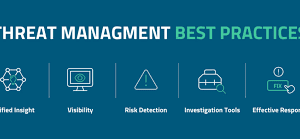In today’s fast-paced business environment, fulfillment management plays a pivotal role in ensuring smooth operations. From inventory tracking to order delivery, fulfillment processes directly affect customer satisfaction and overall business success. Yet, understanding fulfillment management and implementing efficient strategies is not always straightforward. This article will break down key strategies that can help your business streamline its fulfillment operations, reduce costs, and improve customer experience.
1) What is Fulfillment Management?
Fulfillment management refers to the entire process of receiving, processing, and delivering customer orders. It involves various stages, including inventory management, order processing, picking and packing, shipping, and returns handling. Efficient fulfillment management ensures that these steps are completed accurately and in a timely manner, minimizing delays and errors. As businesses grow, the complexity of managing fulfillment increases, requiring robust strategies to maintain efficiency.
2) The Importance of Efficient Fulfillment
Efficient fulfillment is essential for customer satisfaction. With online shopping becoming increasingly prevalent, customers expect fast and reliable delivery. If orders are delayed, incomplete, or incorrect, it can lead to dissatisfied customers and lost business. Efficient fulfillment also helps reduce operational costs by optimizing inventory management and reducing shipping errors. In the long run, businesses that invest in improving their fulfillment processes will find it easier to retain customers and improve profitability.
3) Streamlining Inventory Management
One of the foundational elements of fulfillment management is effective inventory management. By maintaining accurate inventory records, businesses can prevent stockouts and overstocking, both of which can negatively impact profitability. Implementing a real-time inventory tracking system allows businesses to monitor stock levels, reorder products when necessary, and avoid costly errors that arise from mismanaging inventory.
AMS Fulfillment Management
Businesses looking for expert assistance in managing their fulfillment processes can benefit from the services offered by AMS Fulfillment Management. With years of experience in the industry, AMS Fulfillment provides tailored solutions that help businesses streamline their inventory management, order processing, and shipping. By visiting their website, you can explore detailed insights into how they can support your business and improve your fulfillment efficiency. Their approach to fulfillment ensures that businesses of all sizes can enhance customer satisfaction while keeping operational costs under control.
4) Automating Order Processing
Order processing can be time-consuming, especially as order volumes increase. Automation can simplify this step by eliminating the need for manual data entry. Many businesses use order management systems (OMS) that automatically process orders as they come in, assign them to the right warehouse, and trigger the picking and packing process. Automating order processing reduces human error, speeds up the fulfillment timeline, and ensures that customer orders are handled quickly and efficiently.
5) Optimizing the Picking and Packing Process
The picking and packing process is where efficiency can make a significant difference. Optimized warehouse layouts and picking strategies, such as batch picking or zone picking, can help reduce the time it takes to locate and pack products. By organizing products in a logical order and training employees in efficient packing techniques, businesses can minimize shipping errors and improve the speed of their fulfillment operations.
6) Choosing the Right Shipping Strategy
Shipping is a critical part of fulfillment management, and the right strategy can save both time and money. Businesses should evaluate shipping carriers and compare rates to find the most cost-effective option. Additionally, offering a range of shipping options—such as standard, expedited, and international shipping—can improve customer satisfaction. Efficient fulfillment management often involves negotiating bulk shipping rates with carriers or using a fulfillment partner to handle logistics.
7) Leveraging Technology for Fulfillment
Technology is an integral part of modern fulfillment management. From warehouse management systems (WMS) to order tracking software, these tools help businesses monitor and control every aspect of the fulfillment process. Many businesses use cloud-based fulfillment platforms that provide real-time visibility into order status, inventory levels, and shipping performance. By leveraging technology, businesses can streamline operations, reduce errors, and enhance customer service.
8) Managing Returns Efficiently
Returns are an unavoidable part of the fulfillment process, but they can be costly if not managed properly. A clear and efficient returns process improves customer satisfaction while reducing the burden on your fulfillment operations. Many businesses use reverse logistics systems to handle returns, track inventory, and restock items quickly. Additionally, offering customers easy return options—such as pre-paid return labels or drop-off locations—can improve their overall experience and increase the likelihood of repeat business.
9) Monitoring Key Performance Indicators (KPIs)
To ensure your fulfillment management strategies are effective, it’s important to monitor key performance indicators (KPIs). These metrics can include order accuracy, delivery times, inventory turnover, and customer satisfaction ratings. By regularly reviewing these KPIs, businesses can identify areas for improvement and make data-driven decisions to enhance their fulfillment operations. Continuous monitoring allows businesses to adapt to changing market conditions and maintain efficient operations.
10) Partnering with a Fulfillment Service Provider
For many businesses, partnering with a third-party fulfillment service provider can significantly improve their operations. Fulfillment partners, such as AMS Fulfillment, offer expertise in managing inventory, processing orders, and handling shipping logistics. By outsourcing these tasks, businesses can focus on growth and development while ensuring that their fulfillment operations run smoothly. Working with a fulfillment provider also provides access to advanced technology and shipping discounts that might not be available to smaller businesses.
Conclusion
Efficient fulfillment management is critical for businesses that want to succeed in today’s competitive market. From automating order processing to optimizing shipping and managing returns, there are many strategies businesses can adopt to enhance their operations. By leveraging technology, monitoring KPIs, and considering a partnership with a fulfillment service provider like AMS Fulfillment, companies can create a seamless fulfillment process that delights customers and supports long-term growth.



































